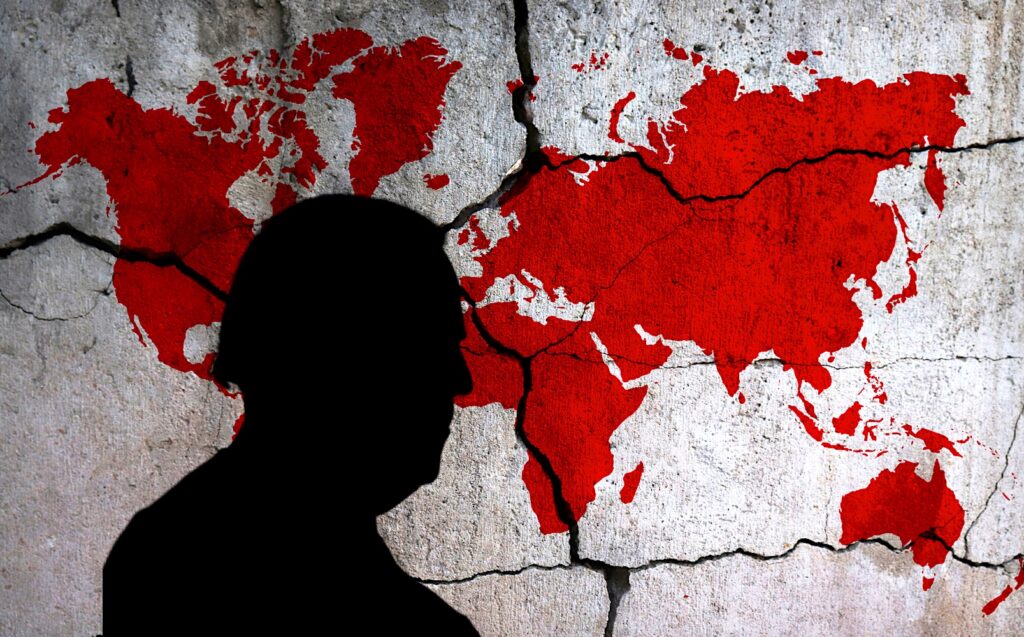U.S. foreign policy hot spots may boil over under lame-duck president
The U.S. has sometimes been accused of practicing “boiling point diplomacy” – waiting for a crisis to happen before truly addressing problems on the international front.
If that’s the…

The U.S. has sometimes been accused of practicing “boiling point diplomacy” – waiting for a crisis to happen before truly addressing problems on the international front.
If that’s the case, American foreign policy right now offers many hotspots that could boil over into bigger problems before President Trump is inaugurated for his second term on Jan. 20.
Here’s a brief rundown of the major hotspots:
Israel-Hezbollah ceasefire
The ceasefire between Israel and Hezbollah in Lebanon is under increasing strain as the sides continue to trade accusations the other side is violating the agreement.
In the latest dustup, Hezbollah and Israel traded volleys in Lebanon, after the Iranian-backed militia group reportedly sent missiles toward Israeli forces.
Newsweek has reported Israeli claims that, rather than violating the ceasefire, Israel is simply trying to enforce the terms to the agreement.
Lebanon was the last line of defense for the terror group Hamas, which has been routed out of the Palestinian territories by Israel one year after its unprovoked attack on Israeli civilians.
Rebel gains in Syria
Rebels opposing Syrian dictator Bashar Assad have suddenly made surprising gains on the heels of Israeli success against Hamas and Hezbollah, reports the Associated Press.
The gains could open up a wider war in the Middle East, if Israel and the new Trump administration decide the rewards of toppling the Iran-backed Syrian dictator outweigh the risk of Iran directly attacking Israel in response.
While Trump has campaigned on a peace platform, he’s no fan of the ayatollahs’ regime in Iran, which has tried to assassinate him. He’s also a big backer of Israel.
Russia also backs Assad. And while Trump previously allowed Russia to help prop up the Syrian dictator, the chance to weaken Iran might be too good to pass up, as Russia has its hands full in Ukraine.
Indeed, the latest intelligence says Russia may be evacuating the Russian fleet from Syrian ports.
For sure, the U.S. won’t support the Syrian rebels, who have ties to al-Qaida, but the U.S. could help keep Iran’s client in Syria weak.
Ukraine-Russian war
The Russian war against Ukraine has devolved into a 1984-type, Orwell-esque trading of drone-enabled, long-range bombing by both sides, as Russia waits for peace talks promised by President Trump once he’s inaugurated.
In the latest episode, Russia launched 110 drones deep into Ukraine to target the electrical grid, reports Reuters.
Ukraine claims it shot down 52 of 110 Russian drones, while Russia lost another 50 in flight, said ABC News.
Russia’s increased use of mass drone attacks is in response to President Joe Biden’s reversal on the use of long-range American-made weapons against Russia, according to Axios. The weapons can be used to strike deep inside Russia, and have been considered by many as a reckless escalation of the conflict by Biden at a time when peace talks were achievable.
Iran
The ayatollahs in charge of Iran are desperate to recalibrate their foreign policy, says NATO’s former commander.
Admiral James Stavridis, U.S. Navy retired, who was previously supreme commander of NATO, says Iran is clearly nervous about Trump.
“You see Iran pulling back. They’re concerned. They’re nervous. They ought to be. Team Trump will take a very aggressive stance towards Tehran,” Stavridis said on a podcast that’s also broadcast on radio.
This is how rattled Iran is: Weirdly, Iran sent a note to President Joe Biden in November promising not to try to assassinate President Trump.
Stavridis said Iran is very vulnerable to air attacks, as demonstrated by Israeli strikes on Iran that “crushed” the ayatollahs’ air defenses.
That’s another reason why Syria’s Assad may be in trouble.
China
China has upped the ante in its geopolitical showdown with the U.S.
Not content with threatening invasion of Taiwan, a U.S. ally, or of supplying fentanyl chemicals to drug dealers worldwide, China now stands accused of helping Russia sabotage an undersea cable in the Baltic Sea that connects the internet between Lithuania and Sweden, according to Radio Free Asia.
Americans of all political stripes are already decidedly anti-China in wake of human rights violations and the aftermath of the COVID-19 outbreak that started in China and was largely covered up by Chinese authorities.
In the latest row between China and the U.S., Biden imposed new export controls over semiconductors that can be used in weapons, artificial intelligence and advanced computing, reports the Daily Caller.



